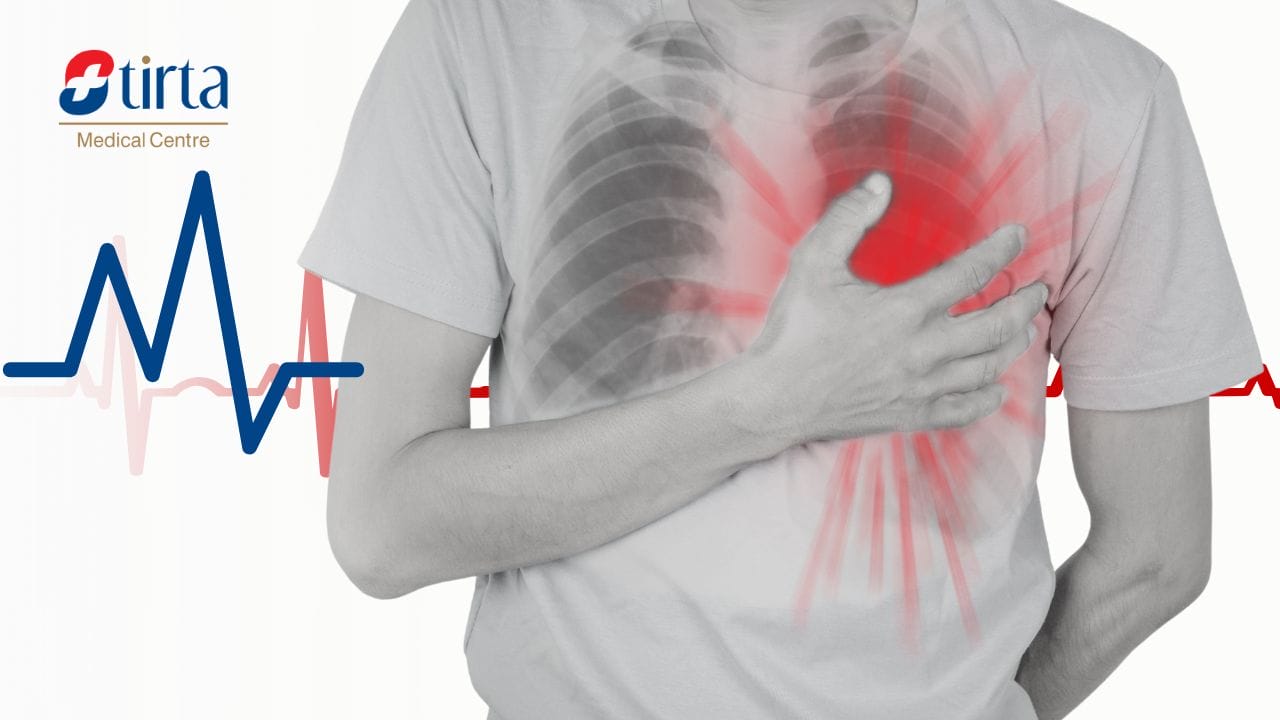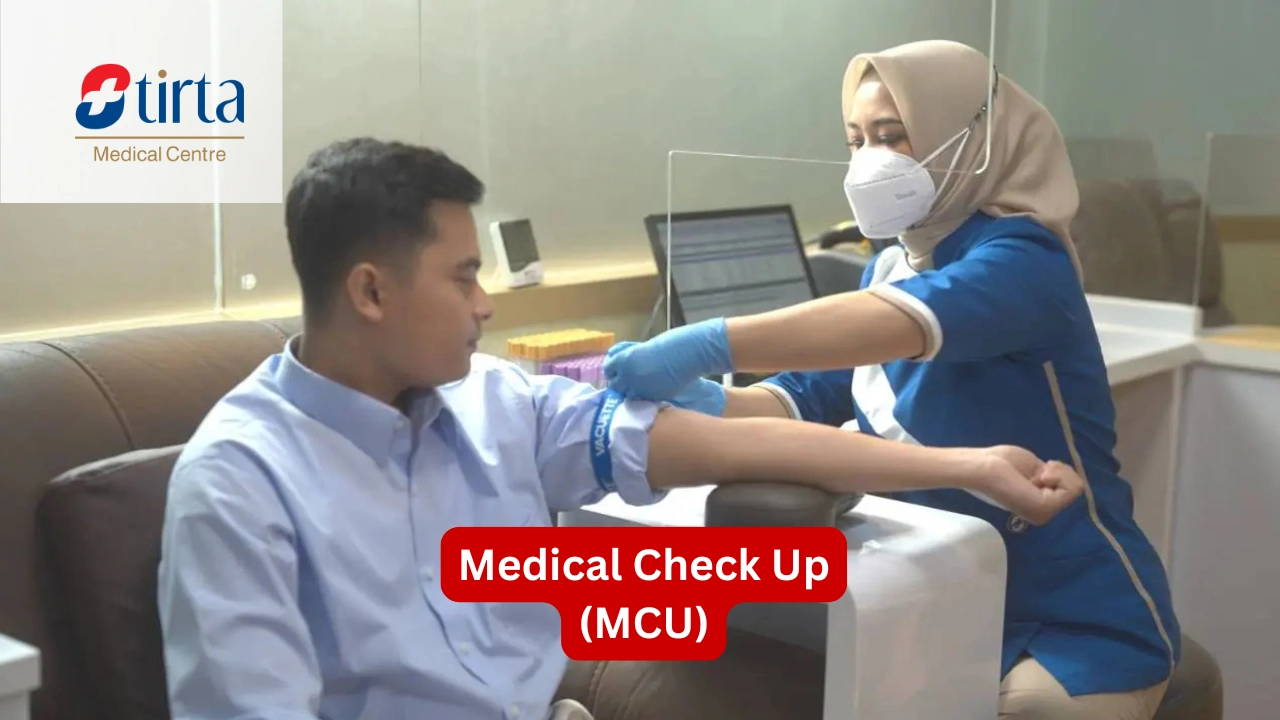Heart disease is a serious health issue and a major cause of death in Indonesia. Recognizing early symptoms and signs of heart disease is crucial for early diagnosis and proper management. Keep in mind that people can have different symptoms, and some might not have any symptoms, often called “the silent killer.”
Characteristics of Heart Disease
Below are 15 characteristics of heart disease that you need to be aware of:
1. Extreme Fatigue
Excessive and persistent fatigue without a clear reason can be a sign that your heart is not pumping blood efficiently. This could indicate coronary artery disease, heart failure, or heart valve problems.
2. Shortness of Breath
If you have trouble breathing after simple activities like walking to the car or going up stairs, this could be a sign of a heart problem. Shortness of breath may indicate atherosclerosis, coronary artery disease, or heart failure.
3. Change in Exercise Tolerance
If tasks that were once easy become hard, like mowing the lawn, this could be a sign of heart disease. Changes in exercise tolerance may indicate coronary artery disease, heart failure, or heart valve problems.
4. Digestive Problems
Nausea, vomiting, or abdominal pain can be signs of a heart attack, especially in women. These symptoms are often mistaken by heart disease sufferers as typical digestive issues.
5. Sleep Disorders
Sleep apnea, snoring, or frequently waking up at night may be linked to heart problems. Sleep disorders can indicate arrhythmias, coronary artery disease, or heart failure.
6. Swelling
Swelling in the legs, ankles, or feet can be a sign of heart failure or heart valve issues. If your finger leaves a mark when pressing on a swollen area, see a doctor immediately.
7. Chest Pain
A feeling of pressure, tightness, or heaviness in the chest can be a sign of heart problems. Many people describe heart pain as feeling like an elephant is sitting on their chest.
8. Leg Cramps
Pain in the legs or trouble walking may indicate poor blood flow due to blocked arteries.
9. Changes in Heart Rhythm and Beat
An irregular heartbeat that’s too fast or too slow (palpitations) can indicate arrhythmias or blood pressure issues.
10. Pain in Other Parts of the Body
Pain in the shoulder, arm, neck, back, abdomen, or jaw can be a sign of coronary artery disease or atherosclerosis.
11. Dizziness or Lightheadedness
Feeling dizzy or faint may mean that blood isn’t flowing properly to the brain because of heart issues.
12. Persistent Cough
A cough that won’t go away may be a sign of fluid buildup in the lungs due to heart failure.
13. Weakness in Limbs
Weakness in the legs may lead to difficulty exercising and breathing issues, which could signal heart problems.
14. Excessive Sweating
Sudden cold sweats, especially if accompanied by other symptoms, can be a sign of a heart attack.
15. Skin Symptoms
Changes in skin color to bluish, swelling in the legs, or changes in the nails can indicate heart problems.
Types of Heart Disease
Heart disease encompasses various conditions that affect the structure or function of the heart. Some types of heart disease you need to know include:
1. Coronary Heart Disease (CHD)
Coronary heart disease occurs when the coronary arteries that supply blood to the heart narrow or become blocked. This can lead to angina (chest pain) or a heart attack.
2. Heart Failure
A condition where the heart cannot pump blood effectively throughout the body.
3. Arrhythmias
A heart rhythm disorder that causes an irregular heartbeat that is too fast or too slow.
4. Heart Valve Disease
Occurs when one or more heart valves do not function properly.
5. Cardiomyopathy
A heart muscle disease that causes the heart to enlarge, thicken, or become stiff.
How to Diagnose Heart Disease
Diagnosing heart disease involves several methods including:
1. Physical Examination
The doctor will check your blood pressure, heart rate, and listen to your heart sounds.
2. Blood Tests
To measure levels of cholesterol, triglycerides, and other heart markers.
3. Electrocardiogram (EKG)
Records the electrical activity of the heart.
4. Echocardiogram
Uses sound waves to create images of the heart.
5. Stress Test
Evaluates how the heart works during physical activity.
6. Coronary Angiography
An imaging procedure to see blood flow through the coronary arteries.
How to Prevent Heart Disease
Preventing heart disease can be achieved by adopting a healthy lifestyle such as:
- Maintaining a balanced diet
- Exercising regularly
- Quitting smoking
- Managing stress effectively
- Maintaining an ideal weight
- Controlling blood pressure and cholesterol levels
- Limiting alcohol consumption
- Getting enough quality sleep
When to See a Doctor?
You should see a doctor immediately if you experience the following symptoms:
- Intense or prolonged chest pain
- Sudden or severe shortness of breath
- Very fast or irregular heartbeat
- Dizziness or fainting without a clear cause
- Rapid swelling in the legs or abdomen
For a comprehensive heart examination, you can visit the Tirta Medical Centre (TMC). Tirta Clinic provides the latest cardiac diagnostic services with a team of experienced heart specialists.
It is important to remember that early detection and proper management can greatly improve the prognosis of heart disease. Do not hesitate to consult a doctor if you experience suspicious symptoms or have risk factors for heart disease.
Here are the translations of your reference citations into English with correct spelling and grammar:
References:
- SingleCare. Accessed in 2024. 15 signs of heart problems worth worrying about: https://www.singlecare.com/blog/signs-of-heart-problems/
- Jurnal Biologica Samudra. Accessed in 2024. Article Review: Causes and Treatment of Heart Attacks: https://ejurnalunsam.id/index.php/jbs/article/view/3925
- Jurnal Stikes Kendal. Accessed in 2024. Overview of Factors Influencing the Incidence of Coronary Heart Disease (CHD) at the Integrated Heart Center (IHC): https://journal2.stikeskendal.ac.id/index.php/PSKM/article/download/1077/790
- Jurnal Stikes William Booth. Accessed in 2024. Factors Related to the Incidence of Coronary Heart Disease (CHD) at Dr. (H.C.) Ir. Soekarno General Hospital, Bangka Belitung Province, Year 2022: https://jurnal.stikeswilliambooth.ac.id/index.php/Kep/article/view/472
- Mount Sinai – New York. Accessed in 2024. Coronary Heart Disease Information. https://www.mountsinai.org/health-library/diseases-conditions/coronary-heart-disease
- British Heart Foundation. Accessed in 2024. 10 signs you might have heart and circulatory disease: https://www.bhf.org.uk/informationsupport/heart-matters-magazine/medical/signs-you-might-have-heart-disease
- NHLBI, NIH. Accessed in 2024. Coronary Heart Disease – What Is Coronary Heart Disease?: https://www.nhlbi.nih.gov/health/coronary-heart-disease
- CDC. Accessed in 2024. About Heart Disease: https://www.cdc.gov/heart-disease/about/index.html
- Healthline. Accessed in 2024. Heart Disease: Risk Factors, Prevention, and More: https://www.healthline.com/health/heart-disease








